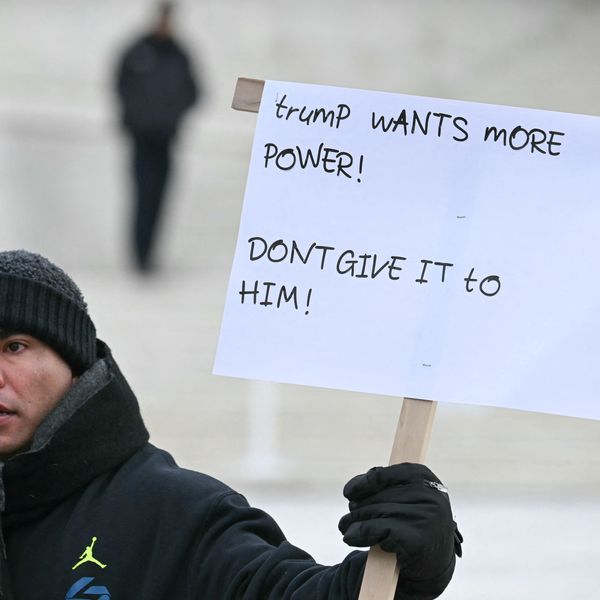The U.S. Supreme Court could soon turn the nation into "a safe haven for human rights abusers," rights groups said Wednesday, raising alarm over the court's plan to hear arguments from Nestle and Cargill about a lawsuit brought against the companies in 2005.
The two multinational food corporations are asking the Supreme Court to reinterpret the Alien Tort Statute, which dates back to 1789 and gives federal courts jurisdiction to hear lawsuits filed by non-U.S. citizens regarding violation of international law. The court said last month it would hear the appeal in the fall.
Fifteen years after six Malian people brought a case against Nestle and Cargill, alleging they were abused while working on Ivory Coast cocoa farms used by the companies, Nestle and Cargill are arguing that the Alien Tort Statute can only be used to indict individuals, not corporations.
A ruling in the companies' favor "would be bad news for human rights," the Fair World Project tweeted.
"If they win this appeal, they will have succeeded in denuding the major human rights tool that activists have in court," Terrence Collingsworth, executive director of International Rights Advocates, which is representing the plaintiffs, told The Guardian Wednesday.
The companies' appeal follows more than a decade of federal court decisions regarding the case. Most recently, a California circuit court ruled Nestle and Cargill could be held liable under the Alien Tort Statute.
The six plaintiffs allege they were kidnapped from Mali and taken to farms in the Ivory Coast where they were physically abused and forced to work without pay for up to 14 hours per day--an ordeal from which Nestle and Cargill allegedly profited.
The two companies say they have not worked with farms that use child labor or forced labor, and Nestle has stated that all parties involved in the case have previously said the company did not engage in child labor.
A high court ruling in favor of Cargill and Nestle would be a "nail-in-the-coffin moment" for corporate accountability, Charity Ryerson of Corporate Accountability Lab told The Guardian.
Should the court rule as the companies hope it will, plaintiffs would need to present evidence that specific company leaders at Nestle and Cargill signed off on the use of child labor, a "virtually impossible" feat," Collingsworth told The Guardian.
"This would effectively allow [some companies] to continue using child slaves with impunity," he added.
Companies would be disincentivized by the potential ruling to monitor their supply chains and would become "potentially more abusive" toward workers, Ryerson warned.
Last month, when the Supreme Court announced it would hear Nestle and Cargill's appeal, International Rights Advocates slammed the companies for "arguing that corporations should be absolutely immune under international law."
"Rather than work with IRAdvocates and others to stop child slavery, Nestle and Cargill want legal immunity to continue profiting from child slavery," said the group. "Win or lose in the Supreme Court, we must and will continue the fight to force these companies to free the children."



